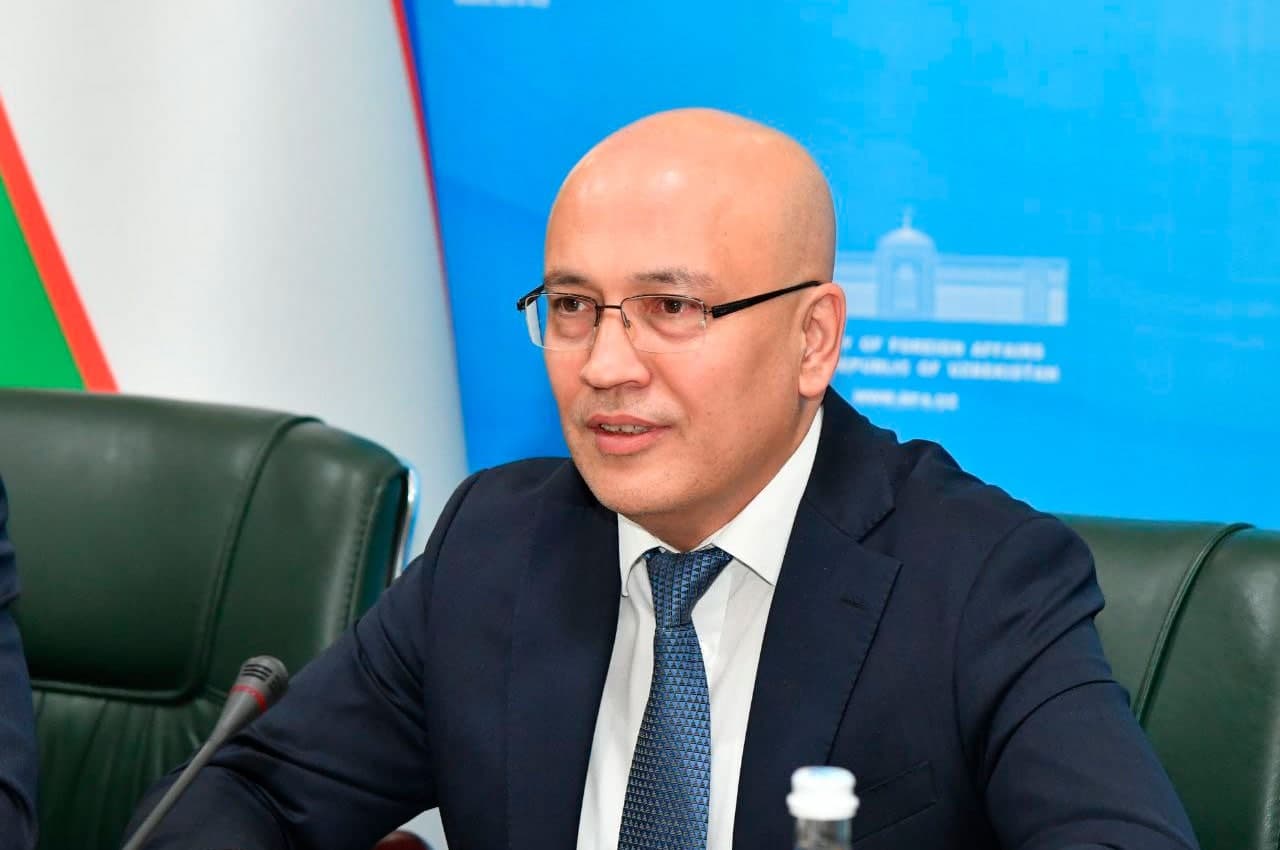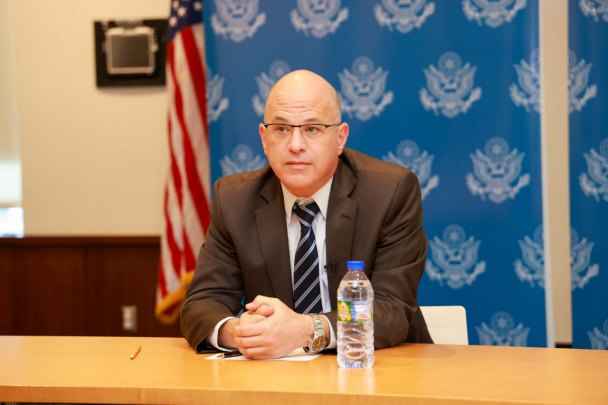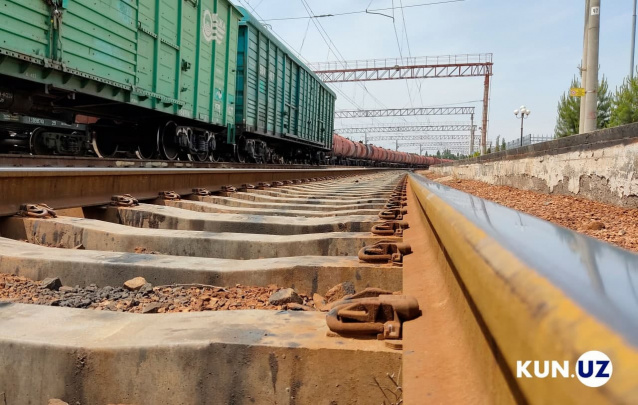“Uzbekistan remains firm in the position not to deploy foreign military bases on its territory” – Furkat Siddikov

An international conference “Central and South Asia: Regional Interdependence. Threats and Opportunities” was held in Tashkent on 15-16 July. Kun.uz asked the Deputy Foreign Minister of Uzbekistan Furkat Siddikov about the significance of this international conference and the expected results.
- Have there been any international conferences on reviving Central and South Asian cooperation? What was the difference between the Tashkent conference and them?
- Today the world is experiencing a period of global geopolitical transformations. This offers enormous opportunities as well as various threats. In these processes, the resumption of active cooperation between Central and South Asia is becoming an objective process.
In this regard, the high-level conference “Central and South Asia: Regional Interdependence. Threats and Opportunities” held in Tashkent on 15-16 July at the initiative of President of Uzbekistan Shavkat Mirziyoyev has become an important event in the life of our region and internationally.
The conference, which was organized for the first time in terms of form and content, was attended by Afghan President Ashraf Ghani, Pakistani Prime Minister Imran Khan, foreign ministers of Central and South Asia and other countries, delegations from 44 countries and about 30 international organizations, heads of leading research and analysis centers. This situation reflects the urgency of the forum.
I would like to focus on another important aspect. The participation of the foreign ministers of Saudi Arabia, Kuwait and Bangladesh in the Tashkent International Conference is a sign that the Islamic world is showing great interest in the process of large-scale reforms in the new Uzbekistan and supports the international initiatives of our leader.
It is known that Central and South Asia regions are historically closely linked with each other by socio-economic and cultural-civilizational dimensions. These two vast regions, being located at the crossroads of the Great Silk Road, have made a significant contribution to the active dialogue between peoples and civilizations over the centuries. Unfortunately, due to historical events in the XIX century, the relations between the two neighboring regions were damaged.
As the President of Uzbekistan noted at the opening ceremony of the conference, it is high time to coordinate the existing intellectual potential and joint efforts, given the great historical, scientific, cultural-educational heritage of the peoples of the two regions and the opportunities for complementarity of our economies.
The head of our state noted that “the historical and civilizational commonality of Central and South Asia, the common interests of our peoples and countries together create a solid foundation for building a prosperous future”.
As for the holding of international conferences on the revitalization of cooperation between the two regions, based on its content and international significance, we have every reason to say that the Tashkent forum has entered a new stage in the development of regional interdependence.
The scale of the conference was extremely wide and high. This is evidenced by the participation of the leaders of Afghanistan and Pakistan, the active participation of foreign ministers of many countries, including the two countries, as well as the promising views on strengthening ties between Central and South Asia.
In this regard, I would like to draw your attention to the results of the official visit of the Prime Minister of Pakistan Imran Khan. Indeed, this political event shows the urgency of the initiative of the head of our state to develop interregional cooperation.
Following the talks, President Shavkat Mirziyoyev and Prime Minister Imran Khan signed a joint declaration on the establishment of strategic partnership between the Republic of Uzbekistan and the Islamic Republic of Pakistan.
Intergovernmental agreements on visa facilitation for transit and trade, business and tourism groups were signed. Also, a protocol on cooperation in the field of military education between the Ministries of Defense, the Cultural Exchange Program for 2021-2026, a memorandum of understanding on tourism, a protocol on the exchange of information on goods and vehicles crossing the state border, a memorandum of understanding between the University of World Economy and Diplomacy and the Pakistan Academy of Diplomatic Service, as well as an agreement on the establishment of the Uzbek-Pakistani Business Council were approved.
It is noteworthy that more than $500 million worth of agreements were signed during the meeting of the Intergovernmental Commission and the Uzbek-Pakistani business forum.
All this indicates that the modern relations between the states and peoples of the two regions are gaining new content.
- Given that the future of Afghanistan is abstract, is it reasonable to expect real results from the conference?
- Indeed, the future of Afghanistan depends on how the situation in the country develops after the complete withdrawal of US and NATO forces from the country.
If we look at the history of Afghanistan, extensive work has been done in this country over the past 20 years. And now we believe that it is necessary to preserve and further develop all the achievements in the life of the country.
In today’s complex situation, the main focus of the world community is on the need for the successful continuation of peace talks between the internal Afghan forces and the need to reach a mutual agreement as soon as possible.
We hope that the talks will help to achieve a complete ceasefire between the warring parties and the signing of a national peace agreement. There is no military solution to the Afghan conflict, history itself has proved this.
The leadership of our country emphasizes the need to resolve the crisis in Afghanistan only through peaceful negotiations, to unite all political parties and forces in the country for the future of its people, to involve all domestic political groups in the inter-Afghan peace process.
We remain committed to the fundamental principle necessary for peace in this country, that is, the political processes necessary to establish lasting peace in the country must be carried out only by the Afghans themselves and under the leadership of the Afghan people, that is, under the slogan “Afghan own, Afghan led”.
In this sense, it is safe to say that the international conference “Central and South Asia: Regional Interdependence. Threats and Opportunities” held in Tashkent was another important step towards lasting peace in Afghanistan.
The leaders of Afghanistan and Pakistan, foreign ministers of a number of countries, as well as representatives of international financial institutions, board members of leading banks, experts of the world’s leading research and analysis centers spoke at the conference and put forward valuable ideas on the situation in Afghanistan and finding a solution to it.
In his speech at the international conference, the head of our state emphasized that Afghanistan is one of the important links in ensuring the regional connection of Central and South Asia, and expressed confidence that the partnership between the two regions will serve as an important factor for peace and stability in the country.
One of the main goals of the conference was to form a common approach to lasting peace in Afghanistan within the region and internationally, make Afghanistan’s geographical location a factor in its socio-economic development, restore mutual trust in the region, increase transport and transit capacity and implement joint infrastructure projects.
This conference is a logical continuation of the efforts made by the head of our state to find a peaceful solution to the Afghan problem and restore its national economy.
The conference created a platform for dialogue between representatives of all countries interested in the establishment of lasting peace in Afghanistan.
Based on the above, it should be noted that the international conference held in Tashkent played an important role in stabilizing the situation in Afghanistan.
- Even if a real armed conflict breaks out in Afghanistan, will Uzbekistan remain in a position not to deploy foreign military bases on its territory?
- The Constitution of the Republic of Uzbekistan, the Concept of Foreign Policy and the Doctrine of Defense provide a clear answer to this question.
Clause 10 of the Defense Doctrine of Uzbekistan states:
“The defense policy of the Republic of Uzbekistan is based on the following principles: preventing the deployment of foreign military bases and facilities on its territory; non-participation of the Armed Forces in peacekeeping operations and military conflicts abroad”.
Based on the above, Uzbekistan will remain firm in the position not to deploy foreign military bases on its territory.
Related News

12:08 / 26.04.2025
Ambassador Henick: Now is the right time for a U.S. presidential visit to Uzbekistan

16:30 / 19.04.2025
Mild tremors felt in Uzbekistan after 5.5 magnitude earthquake shakes Afghanistan

11:52 / 16.04.2025
Mild tremors felt in Uzbekistan after 6.3 magnitude earthquake hit Afghanistan

17:39 / 09.04.2025



